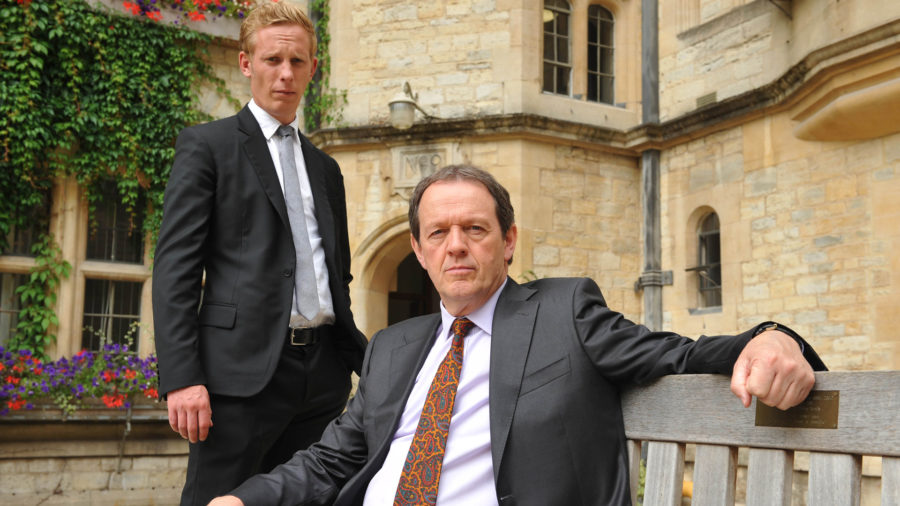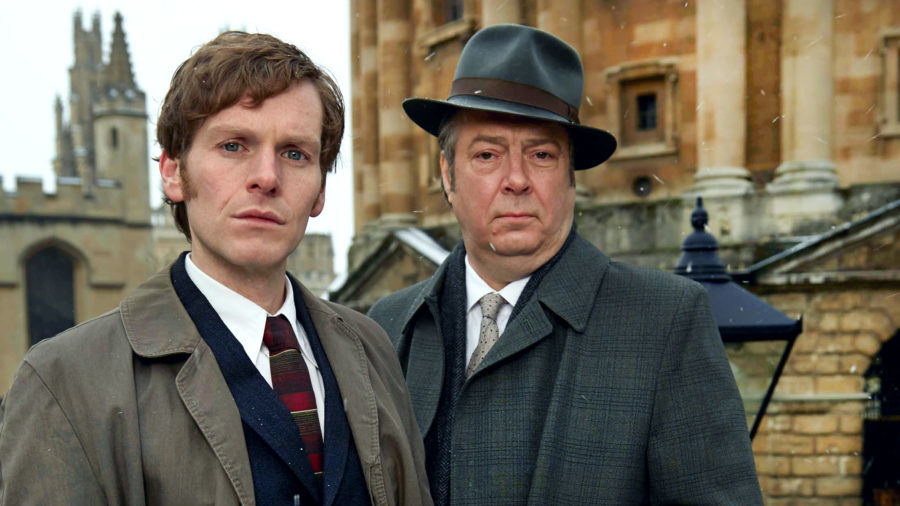~Inspector Morse If ever there was an icon in the annals of British mysteries, it would be Inspector Morse. It has been almost three decades since the late, great John Thaw brought this character to life and in the process created someone beloved enough to create not one but two spin off shows. Gone, but most definitely not forgotten. Inspector Morse is nothing if not a crotchety old bugger. He’s low on patience and high on scorn, has a penchant for classic cars and crosswords and can’t stand the sight of blood — which makes things a touch awkward come murder scene time. His love of poetry, opera and classic literature are traits that serve him well as an Oxford policeman where murder frequently involves the erudite but pompous members of academia. And while he is always so deeply unlucky in love it is his relationship with his partner, Lewis, which becomes integral to the series as they forge a deep friendship over the years. Not that it’s easy in the beginning. At least not for Lewis, who falls frequent victim to Morse’s most finely honed talent; the withering look of contempt. The very first episode of Morse involves a modern day re-telling of Oedipus, all of which needs to be explained to Lewis who, in contrast to Morse’s literary leanings, is an easygoing family man with a geordie accent and working-class background. He’s meat and potatoes to Morse’s blini and caviar. The juxtaposition works nicely, and over time, Lewis learns to hold his own while perfecting his eye rolling talent and injecting his own strengths into the mix. This series started in 1987, so the early shows feel a little dated, and ended in 2000 with the death of Morse, followed a couple of years later by John Thaw himself. It’s a series not to be missed not only because of the fabulous writing and acting but because the setting in Oxford is just visually stunning.
~Lewis I read somewhere recently that it took some convincing to get Kevin Whately to return as Lewis in his own show. Hardly surprising given the size of the shoes he needed to fill but fortunately for Morse fans everywhere, he relented. It is five years after the death of Morse, and Lewis has returned to Oxford after spending two years in the British Virgin Islands training police, after the tragic death of his wife in a hit and run accident.

The first episode of the series proves it to be a pretty seamless continuation of the look of Morse with the pilot episode playing as a satisfying homage to the great man himself: lots of nostalgic touches to make you smile. Lewis is almost run over by a classic cherry red jaguar, the same one Morse drove, there is talk of a scholarship named Endeavor funded by an anonymous donor (in the final Morse episode he does leave some money in his will for such a thing) and several side characters bring up their memories of Morse. Indeed the entire case being solved has roots in Morse’s day and even includes a crossword from the archives with as yet unsolved clues written down by the great detective himself. While the first episode of Morse was a re-telling of Oedipus, the Lewis opener is a re-telling of Hamlet. And because of Lewis’ working class provenance, to keep the general theme going, he is teamed up with Detective Seargent Hathaway who channels the erudition of Morse. He’s Cambridge educated (which generates more than a few jokes) and a former seminary student, much to Lewis’ amusement. He is suitably well versed in all the classics, but wears it a little more gently than Morse used to. He lacks the smugness and instead is more often to be seen with a rather bemused look on his face and the glimmer of a smile. All told this was a great way to continue the legacy of Morse and I probably enjoyed it just as much as the original. It ran for 33 episodes, the exact amount of Morse episodes.
~Endeavour Colin Dexter, the writer of the novels upon which the Morse series is based, reportedly stated that no-one else was to be allowed to play the character of Morse after John Thaw died. Absolutely no remakes. So, if you really want to keep the Morse saga going and the Inspector Lewis series looks like it will be coming to an end in the not too distant future, what is one to do? Well, go back in time of course. The series Endeavour (Morse’s Christian name which he refuses to divulge for most of the original series) goes back to when Morse is just starting out as a policeman in the 1960’s. And if there is one thing that I love more than a mystery, it’s an historical mystery.

Shaun Evans plays the titular role and does it fabulously. He is just how I would imagine the younger Morse. A bit gawky and aloof, making both colleagues and superiors alike bristle. While already a little standoffish, he is not yet as arrogant, nor does he consume as much beer. Clearly this comes later. But his signature weakness for damsels in distress is already there. Poor Morse. Always so unlucky with the ladies! In both shows it gives Morse a slightly mournful air. Just as with Inspector Lewis there are several nods to the original show and little things that show that the reverence for Morse is alive and well. The very first episode sees Endeavour singing in a choir, just as we do in the first episode of Morse and there’s a long meaningful glance at a red jag. And in my favourite real life nod, Abigail Thaw, John Thaw’s daughter plays a journalist. And it’s not just Shaun Evans who plays his role so well. The wonderful Roger Allam is Morse’s superior, Inspector Fred Thursday. He’s kind hearted, a little gruff and constantly perplexed by Morse and his way of doing things. As with the original Morse and Lewis shows, the relationship between the two is central to the series and works brilliantly. In each case, you cannot imagine one without the other.
All three of these shows are wonderful to watch in their own right. It’s fun to see how key elements have been threaded throughout, little touches of nostalgia which help keep the continuity. They all three, even Lewis, without Morse, maintain a vague air of superiority and in all of them, sometimes the mysteries themselves can become a little complicated and melodramatic. It’s all part of the fun.

